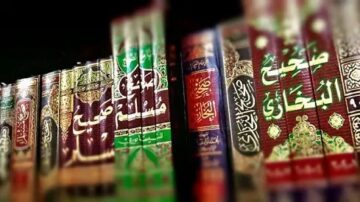Knowledge is too great for it to be publicized, and clearer than for it to appear, for it is dearer to be desired and nobler to be desired. Islam is one religion which gives a special concept to knowledge. The scholars are living a life in their books after they have passed away from this world. History witnessed those scholars who passed away more than the businessman lived in history. Growing our children under the blanket of knowledge is better than sending them to work. So if you water the seeds by helping the children to read they will shed the upcoming Ummath.
Allah Almighty says: “God will raise those who have believed among you and those who have been given knowledge by degrees”.
Ibn Abbas said: “Scholars are one hundred degrees above the believers, and between them is one hundred years.”
Knowledge is the path to winning Paradise, and the way to escape from Hell. Abu Hurairah reported that “Whoever follows a path in pursuit of knowledge, Allah will make his path to Heaven easy for him.”
The words of the scholars among the Companions and those after them multiplied about knowledge and its virtues because they knew its value and saw its importance in the lives of Muslims. Imam Shafi’i said: “Seeking knowledge is better than supererogatory prayers, and after the obligatory prayers is not better than seeking knowledge, and whoever does not like knowledge, there is no good in it, so there is no knowledge or friendship between you and him.”
The Scholars are loved in the heavens and the earth, Allah loves them and they love him. Knowledge remains its trace for man, alive and dead, so his memory will be immortalized with the next, even if he is buried under the soil. Scholars are a safety for the people of Islam, and a fence for the people of faith. There is something better in this world than prophethood, and what comes after prophethood is something better than knowledge and jurisprudence.”
My dear, Islam provided great impetus for the human pursuit of knowledge. The first verse that descended on the Prophet Muhammad (PBUH) was Iqra, which means “read”, an opening door to read, write, and ponder. The prophet Muhammad (SAW) commanded that seeking knowledge is a duty upon every Muslim,, and urged them to seek knowledge as far as they could reach, and also to seek it at all times.
Muslims who distinguished themselves as patrons of learning, established some of the biggest libraries of medieval times. The great intellectuals of their age including Ibn Rushid the encyclopedist, Ibn Miskawayah, the historian-philosopher, Al-Fadl Ibn Naubakht and Humayun Ibn Ishaq, the renowned translators, who were entrusted with the responsibility for the organization and maintenance of libraries.
Under the Abbasids, Muslims formed the vanguard of civilization. They were influenced by the knowledge that the ink of a scholar is equal to the blood of a martyr. During this period the Muslim world became the unrivaled intellectual center for science, philosophy, medicine, and education as the Abbasids championed the cause of knowledge and established Darul Hikama (House of Wisdom) in Baghdad, founded by great Abbasid Caliph Harun-ar-Rashid.
There were similar libraries in Cairo, Aleppo, and the major cities of Iran and Central Asia. Spain alone had seventy public libraries . By the 10th century, Cordoba had 70 libraries, the largest of which had 600,000 books, while as many as 60,000 treatises, poems, polemics and compilations were published each year in Al-Andalus.
By Mohamed Thaha

